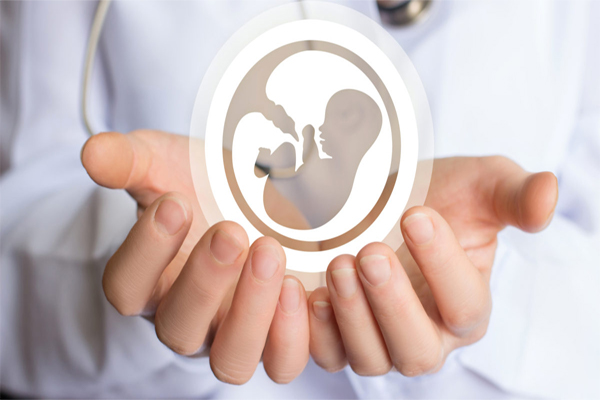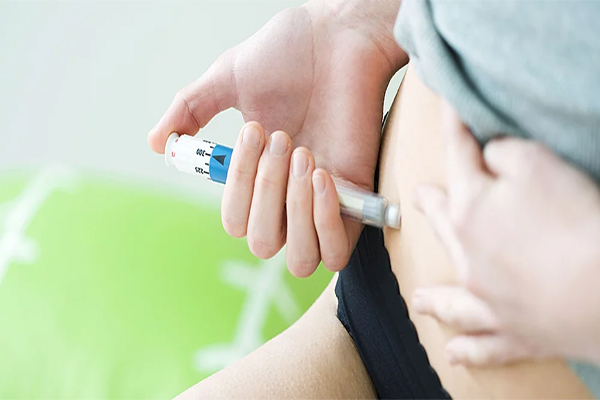IVF infertility treatment is one of the most common assisted reproductive technologies worldwide. Through IVF infertility treatment, all the genetic problems of the fetus can be identified so that the pregnancy can be terminated if necessary and healthy embryos can be transferred in the following stages. Therefore, pregnancy with this method will be completely safe and conservative. IVF infertility treatment helps couples who cannot have children for any reason. In this article from Moj Aramesh Amitis Health Tourism Company, we intend to answer frequently asked questions about IVF infertility treatment, so stay tuned for the rest of this article.

IVF Infertility Treatment
IVF or in vitro fertilization is a procedure in which several eggs are stimulated to mature, then retrieved to be fertilized by sperm and later converted into embryos. IVF infertility treatment is one of the safest methods of assisted reproduction. The chances of getting pregnant with this method are very high, and infertile couples, for various reasons, can use this method for a successful pregnancy and delivery experience.
Frequently Asked Questions About IVF Treatment
In the continuation of this article, the frequently asked questions about IVF infertility treatment are stated, and the answers to each of them are briefly stated.
- Do uterine fibroids reduce the chances of pregnancy?
The spread of fibroids in the uterus may prevent the implantation or successful growth of the fetus or cause miscarriage and premature birth. If embryo implantation occurs near uterine fibroids, it will interfere with blood flow and miscarriage. Also, fibroids may cause severe pain and premature labor in the advanced stages of pregnancy.
- How long does the IVF treatment process take?
It takes about 2 to 4 weeks to get ready to start treatment and the ovulation stimulation phase during the IVF treatment process. It takes about 8 to 10 days for the fertility drugs to be injected and injected, after which the egg recovery stage takes place about two days later.
- What is microinjection?
Microinjection is a procedure in which a man’s sperm is injected through a needle into the center of an egg for fertilization. This method is done for male infertility and increases the chances of male fertility.
- Does taking fertility drugs increase the risk of cancer?
There is no evidence of cancer risk through assisted reproductive drugs during IVF treatment. Studies show no link between taking these drugs and getting cancer of the uterus, breast, and ovaries.
- What factors negatively affect women’s fertility?
Some factors that affect the fertility of infertile women; include maternal age, genetic problems, irregular menstrual cycles, overweight and insulin resistance, sexually transmitted diseases, alcohol and smoking, caffeine overdose, and stress.
- Is IVF treatment painful?
According to the observations, the IVF treatment process does not cause significant discomfort for most patients. However, in the ovarian stimulation phase, some women may experience bloating, and there may be slight bleeding or cramping after the egg is recovered.
- What factors affect the success of IVF treatment?
Older people are generally less likely to succeed in IVF treatment. This is because the quality of the eggs decreases with age, and most people who are older or suffer from premature aging have to work harder to produce eggs and succeed in the healing process. However, by maintaining an ideal weight and having a healthy lifestyle, the success rate of IVF treatment can be increased.
- Does ovarian reserve decrease during IVF treatment?
No. Ovarian reserve does not decrease during IVF treatment, and an endless number of eggs are stored in the ovary to fertilize the uterus and conceive. But if pregnancy does not occur, the same cycle will be repeated in the following months until pregnancy occurs.
- What does 3/7/7 transfer mean?
In the past, embryos were transferred three days after egg retrieval. Still, now, with the development of embryo transfer techniques, most superior centers can transfer embryos on the fifth to seventh days as well. Because in the fifth to seventh days, the fetus grows very well. In addition, embryo transfer helps placental cells be sampled and examined to select the highest quality embryos for transfer.
- Does IVF treatment lead to premature menopause?
No. IVF infertility treatment does not cause premature menopause, and a person’s genetics and menopause determine a women’s menopausal age at a specific time.
- Why are so many eggs needed to transfer an embryo?
Because some eggs are naturally immature, or some mature eggs may not be fertilized. Also, in embryo transfer, some embryos may not be of good quality or have genetic disorders. Therefore, many eggs are needed to transfer the embryo to prepare the best and highest quality embryos for transfer. Fetuses can be frozen more than once and in the future.
- Are all mature eggs fertilized during IVF treatment?
Usually, not all eggs grow simultaneously with the use of egg growth drugs, and their growth rate varies. In addition, fertilization and cell division do not coincide. Some eggs may not even grow at all stages, according to studies, because of the genetic characteristics of sperm and eggs.
- Is there an age limit for IVF treatment?
With age, fertility and pregnancy gradually decrease, and after the age of 40, the chances of fertility and childbirth for women decrease. In addition, after the age of 45, the chance of successful fertility and pregnancy for women reaches about 1 to 5 percent. However, with increasing experience in IVF treatment, some successful pregnancies occur between 40 and 45.
- Does blockage of the fallopian tubes prevent pregnancy?
By blocking the fallopian tubes, the pregnancy process is negatively affected. A sperm-egg bond is formed in the fallopian tubes in a normal pregnancy. Still, since IVF fertilization is performed outside the body, the pregnancy is not affected by obstruction of the fallopian tubes. However, in some cases, the possibility of embryo implantation may be reduced due to fluid accumulation and obstruction of the fallopian tubes. In such cases, the tubes can be closed or removed through laparoscopic surgery to get pregnant.
- Does taking fertility drugs during IVF treatment cause weight gain?
IVF treatment leads to overweight, infertile women due to increased appetite. Because the primary function of these drugs is to create the process of regular hormonal activity in the body, the side effects of these drugs will be associated with weight gain.
- Is there a difference between pregnancy and fresh and frozen embryos?
There is no difference between pregnancy through frozen embryos and embryos rapidly transferred to the mother’s uterus after adequate growth. In some cases, the transfer of frozen embryos even increases the success of the pregnancy.
- Is bleeding ordinary after the embryo transfer?
Vaginal bleeding may occur after embryo transfer for two reasons. The first reason is the trauma inflicted on the uterus during the transfer of the fetus. Bleeding occurs after the embryo is transferred when the passage of a catheter stimulates the uterus.
The second cause of uterine bleeding after embryo transfer occurs during the attachment of fertilized embryos to the uterus, known as post-implantation bleeding. Each of these bleeds is temporary and small and appears as spots.
- What should I do if my sperm count is low or zero in my semen test?
If the semen sample does not contain sperm, a sperm sample can be taken from the testicles during a reoperation. This procedure is usually done simultaneously with the egg recovery and maturation process.

Concluding Remarks
With the development of infertility treatment techniques, Iran is one of the most prosperous countries in terms of IVF infertility treatment. Iran has conducted numerous researches in infertility treatment for many years and has become one of the pioneers of effective infertility treatment. Providing different reproduction methods, including IVF, in Iran is much less expensive than in other countries. IVF infertility treatment in Iran is performed with the best quality and highest accuracy by experienced specialists.
At each stage of IVF treatment, there are minor risks and side effects that the possible side effects of assisted reproductive drugs are temporary and tolerable. There is a possibility of infection and bleeding of the ovaries during IVF treatment. However, there is no danger. Genetic diagnostic tests are essential during IVF treatment for parents with genetic disorders. Because it helps identify fetal defects. These genetic disorders include cystic fibrosis, thalassemia, and other disorders. Fetal sex selection is possible through genetic testing, usually performed after IVF treatment.
Get free advice about IVF infertility treatment in Iran and all the things related to IVF infertility treatment in Iran, contact the skilled experts of Moj Aramesh Amitis Health Tourism Company, and get your treatment services through this collection.




